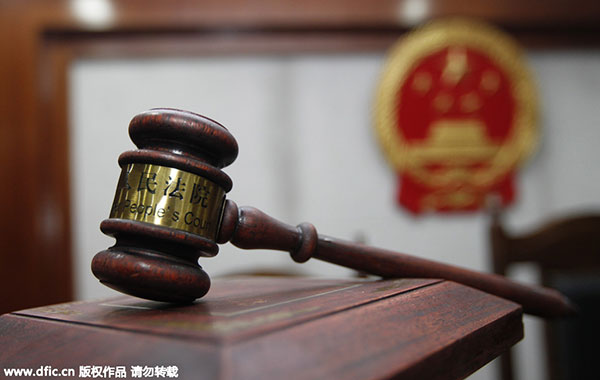 |
|
A gavel in a court. [Photo/IC] |
MA YONG, former Party chief of Yiyang city, Central China's Hunan province, was arrested and prosecuted in January for accepting bribes. However, media reports said the two officials who bribed him were promoted instead of being punished. Both bribe-takers and those offering bribes should be punished, says Beijing News:
The judiciary has long been criticized for punishing bribe-takers while being tolerant of those offering bribes. This criticism is justified, as corruption cannot be rooted out without punishing the bribers.
But the root of the problem lies in legislation rather than the judiciary. The Criminal Law states that any State employee who receives personal profit in some form in return for doing a "favor" is taking a bribe, and when anybody gives a State employee something in order to receive an "illicit gain", that's bribery. The difference lies in the term "illicit gain".
Neither the law nor judicial explanations have clear definitions about what constitutes an "illicit gain". As a result, in judicial practice, procurators and judges decide whether a gain is illicit or not depending on whether it is obviously illegal. For example, those bribing customs officers to smuggle goods are considered to have committed a crime. However, in some cases people give State employees money for economic or political gains that are not obviously illegal. These people often go unpunished.
Many countries' legal systems do not contain such a gray area. As long as someone offers something to a government employee in order to make some form of gain, it is considered a bribe and the court does not care whether the profit is "illicit" or not. There have been calls for the Criminal Law to be amended to eliminate this gray area, but so far the law has not been changed. That's the root cause for bribe-givers receiving lighter or no penalties.
Of course, that does not justify Ma's case. Reports say Ma accepted 20,000 yuan ($3,093) from Liang Chengli and $10,000 from Yang Guangxin, both of whom were later promoted. This is obviously irrational, and both Liang and Yang deserve legal and disciplinary penalties.

I’ve lived in China for quite a considerable time including my graduate school years, travelled and worked in a few cities and still choose my destination taking into consideration the density of smog or PM2.5 particulate matter in the region.
